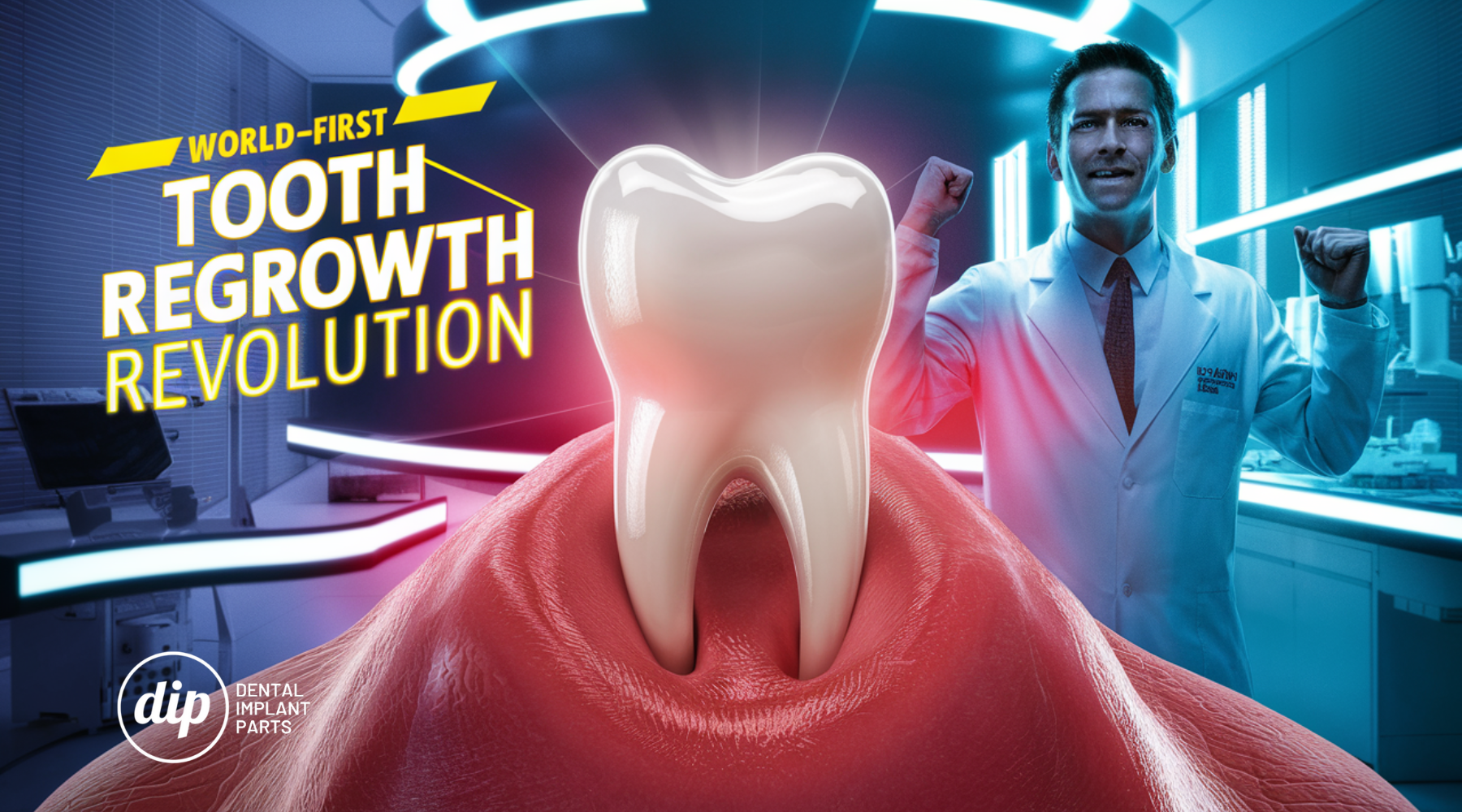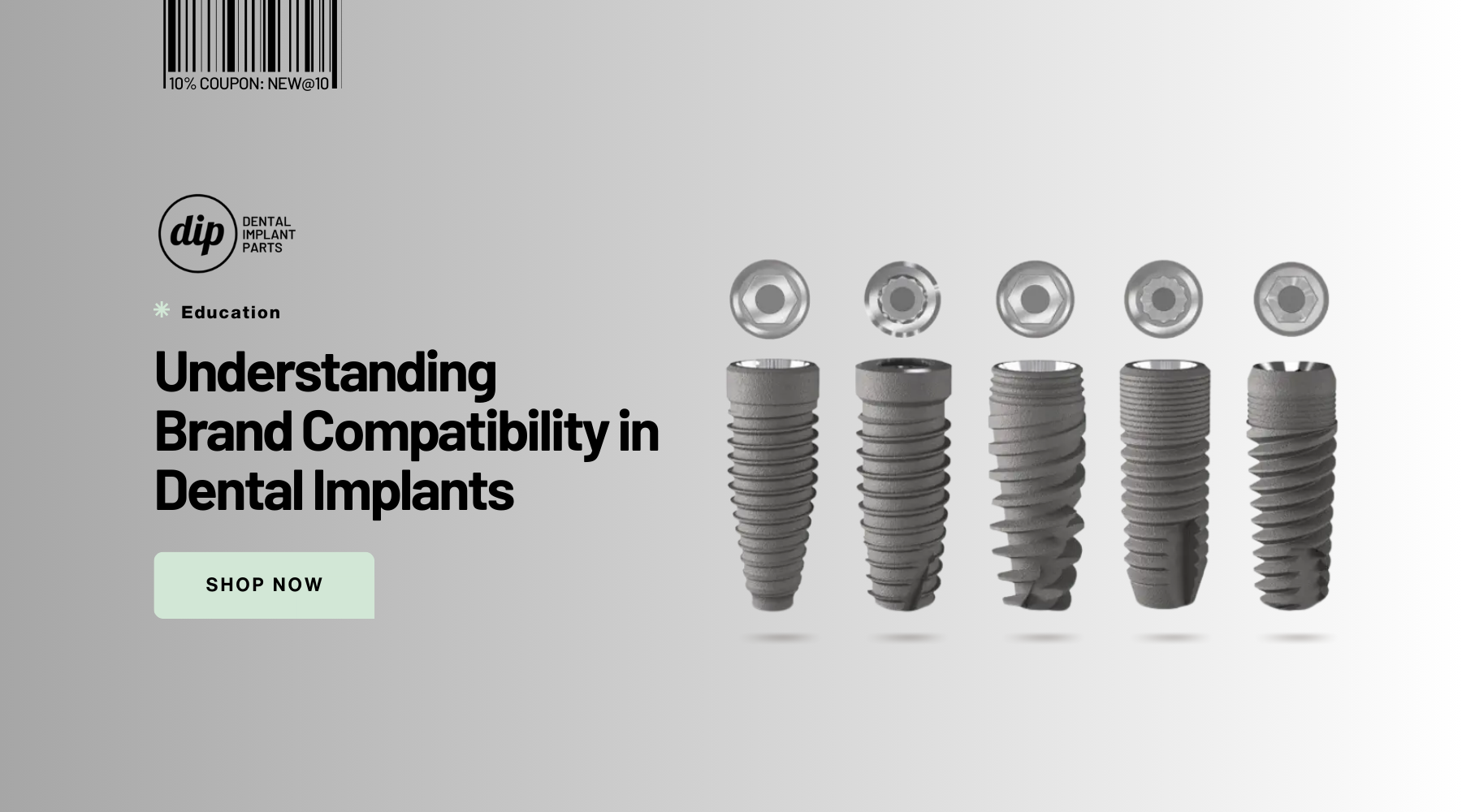The landscape of dentistry is poised for a significant transformation with the imminent arrival of regenerative medicine. The recent announcement of the world's first human trial for a tooth regeneration drug at Kyoto University Hospital in Japan signifies a potential paradigm shift in how we address tooth loss. This article explores the implications of this groundbreaking research for general dental practitioners (GDPs), particularly within the realm of implant dentistry.
A Pioneering Trial: Regeneration vs. Replacement
The trial, scheduled for September 2024, aims to assess the efficacy and safety of a novel drug that targets the USAG-1 protein, known to inhibit tooth growth. This intravenous treatment, if successful, offers the prospect of actual tooth regeneration as opposed to traditional tooth replacement methods like implants.

Potential Impact on Implant Dentistry:
While the long-term commercial availability of regenerative therapy remains to be seen, GDPs should be aware of the potential impact this could have on implant dentistry:
-
Reduced Demand for Implants: If regeneration proves successful and widely adopted, the demand for dental implants might decrease, particularly for patients with single or few missing teeth.
-
Shifting Focus to Specialist Referrals: Regenerative procedures are likely to involve a higher degree of specialization. GDPs may increasingly refer patients requiring tooth regeneration to specialists with expertise in this new field.
-
Focus on Implant Maintenance and Complications: A potential increase in the lifespan of existing implants due to a decrease in new implant placements could lead to a greater emphasis on implant maintenance, complication management, and long-term patient follow-up.
The Importance of Staying Informed
Despite the potential disruption, the field of implant dentistry is likely to remain crucial. A significant portion of the population will continue to require implants due to factors such as advanced periodontal disease, severe tooth trauma, or anatomical limitations that may preclude tooth regeneration.
Maintaining a strong understanding of implant technology and best practices will remain essential for GDPs. Furthermore, staying current with advancements in regenerative dentistry empowers them to:
-
Offer Patients Informed Choices: Being knowledgeable about both implant dentistry and regenerative options allows GDPs to present patients with a comprehensive overview of available tooth replacement solutions.
-
Effectively Manage Existing Implant Patients: The expertise in implant placement and maintenance will remain valuable for the foreseeable future as countless patients will continue to rely on existing implants.
-
Identify Patients for Regeneration vs Implantation: As regenerative therapies progress, GDPs may play a role in triaging patients and determining the most appropriate treatment option – regeneration or implantation – based on individual needs and suitability.
Collaboration with Specialists
Close collaboration with specialists in the field of regenerative dentistry will be paramount. As protocols and techniques for tooth regeneration evolve, effective communication and referral pathways with these specialists will be critical in ensuring optimal patient care.
Conclusion
The advent of tooth regeneration represents a potentially revolutionary chapter in dentistry. While some aspects of implant dentistry may adapt to this evolving landscape, the core principles and expertise will undoubtedly remain valuable. By embracing continuous learning and fostering strong relationships with specialists in regenerative dentistry, GDPs can navigate this exciting new era and continue providing their patients with exceptional dental care.




